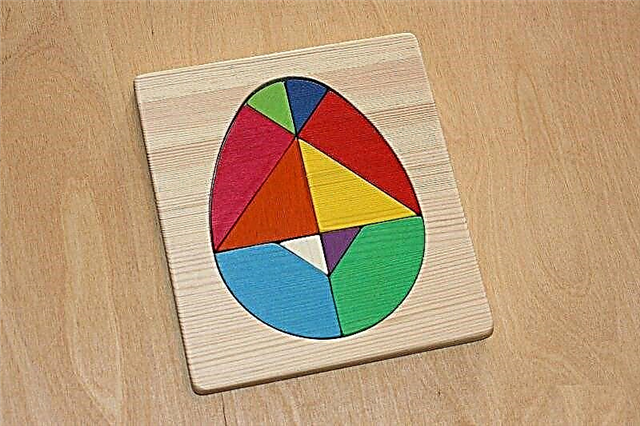
When a baby starts trying new products, parents want to give the baby the healthiest and most vitamin-rich food. It is known that lemon is a rich source of vitamin C, but is it worth giving this citrus fruit a try, at what age can it be done and what should be feared?
Benefit
Lemons, like other citrus fruits, contain a lot of vitamin C, and the juice from these fruits has antiseptic and antipyretic properties. Moderate consumption of lemon has the following positive effects:
- Improves digestion by eliminating indigestion, constipation or diarrhea.
- Disinfects the oral cavity.
- It has an anthelmintic effect.
- Helps in the treatment of flu and colds.
- When added to drinks during the summer, it will help quench your thirst and cool off in hot weather.
Lemons are especially useful for children with hypovitaminosis, acute viral infections, and digestive problems.

Harm
- Although the color of the lemons is not bright, these citrus fruits can still cause an allergic reaction.
- Due to the high content of organic acids, the use of lemon can have a bad effect on the mucous membranes of the baby's digestive tract. Lemon is contraindicated in gastritis, cholecystitis, enteritis, pancreatitis and other inflammatory diseases of the gastrointestinal tract.
- The negative effect of the acids contained in lemon on tooth enamel is also noted.
From how many months can you enter the diet?
You should start acquaintance with lemon crumbs no earlier than 8-10 months of age. You can give both small pieces of fruit, and citrus juice, diluted with water with added sugar.
After asking the baby to try a tiny slice of lemon for the first time, do not give any new products in the next three days in order to be able to track down a negative reaction to this fruit in time. If the crumb takes the citrus normally, you can continue to give the lemon in small chunks, but not daily.

Allergy-prone babies are not advised to give lemon until at least two years of age. Most pediatricians, in the presence of allergic diseases in a child, recommend postponing the introduction of lemons into the diet until the age of 5.
How to cook for a 1 year old baby?
For complementary foods, lemon, unlike other fruits, is not ground, but given in tiny pieces. The fruit should be thoroughly washed and peeled from seeds.
Why doesn't the baby frown?
Many children, when tasting lemon at an early age (9-10 months), eat it absolutely calmly and do not frown. The reason for this strange behavior for parents when eating lemon is the weak development of receptors in children's language. At this age, some babies do not yet feel the full acidity of a lemon wedge.

But mostly children taste sour. You can laugh a little and watch the reaction of the kids who try lemon for the first time in the next video.
Treatment
Lemon helps to cope with quite a number of health problems:
- Vomiting caused by indigestion or a nervous breakdown you can mix lemon juice (1/2 teaspoon) with natural honey (teaspoon). Such a remedy will relieve vomiting.
- To lower the temperature combine lemon juice (freshly squeezed) and honey, taking a tablespoon of each ingredient. Dilute them with 200 ml of warm water and let the child drink 3-4 times during the day.
- If the baby has tonsillitis, let's drink warm water with lemon (for a glass of water 1-2 teaspoons of fresh juice) and honey (tablespoon). Also, with sore throat, it is useful to eat fresh lemon and do regular rinses with lemon water (take 25 ml of lemon juice for 50 ml of water).
- Restoring water and electrolyte balance with diarrhea can be carried out with diluted lemon juice. Add a tablespoon of juice, a pinch of sugar and salt to a glass of water. Give this remedy to your baby in small portions.
- To improve appetite and get rid of bad breath, daily use a teaspoon of the product, which is a mixture of grated lemon zest and honey.

Tips for choosing a quality lemon
For a small child who will try lemon for the first time, it is worth buying a fruit with a smooth skin of a pale yellow-orange hue. This fruit has a sweeter and more delicate taste, close to orange. If the skin of the lemon is smooth, but the color is bright yellow, then such a fruit will have a pronounced sour taste, which the baby may not like.
The lemon peel can be used to judge the quality and ripeness of the fruit. At the same time, you need to pay attention to the shine - if the lemon is not ripe, it will be slightly dull, and the pronounced shine indicates that you have already ripe fruit in your hands.
When buying a lemon for a crumb, keep in mind that the lumpiness of the skin indicates that it is very thick. However, such lemons will be richer in nutrients, since the thick peel will reliably protect them inside the fruit.

When buying, be sure to click on the lemon and appreciate its firmness. Ripe fruits will spring slightly, and softness indicates overripe. If you have purchased an unripe lemon, keep it in the refrigerator for a while, then it will retain both its pleasant taste and valuable properties.
Brown spots on lemons can be a sign of hypothermia in the fruit. These fruits usually have bitterness, so don't buy them for a child. If you have identified the bitterness of the lemon already at home, simply scald the fruits with boiling water.
Find out if your child's weight is normal using the following calculator.



